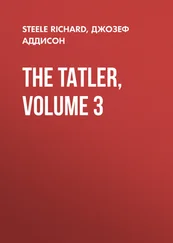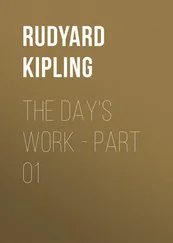Джозеф Киплинг - The Day's Work - Volume 1
Здесь есть возможность читать онлайн «Джозеф Киплинг - The Day's Work - Volume 1» весь текст электронной книги совершенно бесплатно (целиком полную версию без сокращений). В некоторых случаях можно слушать аудио, скачать через торрент в формате fb2 и присутствует краткое содержание. Год выпуска: 2014, Издательство: epubBooks Classics, Жанр: Прочие приключения, на английском языке. Описание произведения, (предисловие) а так же отзывы посетителей доступны на портале библиотеки ЛибКат.
- Название:The Day's Work - Volume 1
- Автор:
- Издательство:epubBooks Classics
- Жанр:
- Год:2014
- ISBN:нет данных
- Рейтинг книги:3 / 5. Голосов: 1
-
Избранное:Добавить в избранное
- Отзывы:
-
Ваша оценка:
- 60
- 1
- 2
- 3
- 4
- 5
The Day's Work - Volume 1: краткое содержание, описание и аннотация
Предлагаем к чтению аннотацию, описание, краткое содержание или предисловие (зависит от того, что написал сам автор книги «The Day's Work - Volume 1»). Если вы не нашли необходимую информацию о книге — напишите в комментариях, мы постараемся отыскать её.
The Day's Work - Volume 1 — читать онлайн бесплатно полную книгу (весь текст) целиком
Ниже представлен текст книги, разбитый по страницам. Система сохранения места последней прочитанной страницы, позволяет с удобством читать онлайн бесплатно книгу «The Day's Work - Volume 1», без необходимости каждый раз заново искать на чём Вы остановились. Поставьте закладку, и сможете в любой момент перейти на страницу, на которой закончили чтение.
Интервал:
Закладка:
He took a small tin tobacco–box from his sodden waistbelt and thrust it into Findlayson's hand, saying, "Nay, do not be afraid. It is no more than opium—clean Malwa opium!"
Findlayson shook two or three of the dark–brown pellets into his hand, and hardly knowing what he did, swallowed them. The stuff was at least a good guard against fever—the fever that was creeping upon him out of the wet mud—and he had seen what Peroo could do in the stewing mists of autumn on the strength of a dose from the tin box.
Peroo nodded with bright eyes. "In a little—in a little the Sahib will find that he thinks well again. I too will—" He dived into his treasure–box, resettled the rain–coat over his head, and squatted down to watch the boats. It was too dark now to see beyond the first pier, and the night seemed to have given the river new strength. Findlayson stood with his chin on his chest, thinking. There was one point about one of the piers—the seventh—that he had not fully settled in his mind. The figures would not shape themselves to the eye except one by one and at enormous intervals of time. There was a sound rich and mellow in his ears like the deepest note of a double–bass—an entrancing sound upon which he pondered for several hours, as it seemed. Then Peroo was at his elbow, shouting that a wire hawser had snapped and the stone–boats were loose. Findlayson saw the fleet open and swing out fanwise to a long–drawn shriek of wire straining across gunnels.
"A tree hit them. They will all go," cried Peroo. "The main hawser has parted. What does the Sahib do?"
An immensely complex plan had suddenly flashed into Findlayson's mind. He saw the ropes running from boat to boat in straight lines and angles—each rope a line of white fire. But there was one rope which was the master rope. He could see that rope. If he could pull it once, it was absolutely and mathematically certain that the disordered fleet would reassemble itself in the backwater behind the guard–tower. But why, he wondered, was Peroo clinging so desperately to his waist as he hastened down the bank? It was necessary to put the Lascar aside, gently and slowly, because it was necessary to save the boats, and, further, to demonstrate the extreme ease of the problem that looked so difficult. And then—but it was of no conceivable importance—a wirerope raced through his hand, burning it, the high bank disappeared, and with it all the slowly dispersing factors of the problem. He was sitting in the rainy darkness—sitting in a boat that spun like a top, and Peroo was standing over him.
"I had forgotten," said the Lascar, slowly, "that to those fasting and unused, the opium is worse than any wine. Those who die in Gunga go to the Gods. Still, I have no desire to present myself before such great ones. Can the Sahib swim?"
"What need? He can fly—fly as swiftly as the wind," was the thick answer.
"He is mad!" muttered Peroo, under his breath. "And he threw me aside like a bundle of dung–cakes. Well, he will not know his death. The boat cannot live an hour here even if she strike nothing. It is not good to look at death with a clear eye."
He refreshed himself again from the tin box, squatted down in the bows of the reeling, pegged, and stitched craft, staring through the mist at the nothing that was there. A warm drowsiness crept over Findlayson, the Chief Engineer, whose duty was with his bridge. The heavy raindrops struck him with a thousand tingling little thrills, and the weight of all time since time was made hung heavy on his eyelids. He thought and perceived that he was perfectly secure, for the water was so solid that a man could surely step out upon it, and, standing still with his legs apart to keep his balance—this was the most important point—would be borne with great and easy speed to the shore. But yet a better plan came to him. It needed only an exertion of will for the soul to hurl the body ashore as wind drives paper, to waft it kite–fashion to the bank. Thereafter—the boat spun dizzily—suppose the high wind got under the freed body? Would it tower up like a kite and pitch headlong on the far–away sands, or would it duck about, beyond control, through all eternity? Findlayson gripped the gunnel to anchor himself, for it seemed that he was on the edge of taking the flight before he had settled all his plans. Opium has more effect on the white man than the black. Peroo was only comfortably indifferent to accidents. "She cannot live," he grunted. "Her seams open already. If she were even a dinghy with oars we could have ridden it out; but a box with holes is no good. Finlinson Sahib, she fills."
"Accha! I am going away. Come thou also."
In his mind, Findlayson had already escaped from the boat, and was circling high in air to find a rest for the sole of his foot. His body—he was really sorry for its gross helplessness—lay in the stern, the water rushing about its knees.
"How very ridiculous!" he said to himself, from his eyrie—"that is Findlayson—chief of the Kashi Bridge. The poor beast is going to be drowned, too. Drowned when it's close to shore. I'm—I'm onshore already. Why doesn't it come along."
To his intense disgust, he found his soul back in his body again, and that body spluttering and choking in deep water. The pain of the reunion was atrocious, but it was necessary, also, to fight for the body. He was conscious of grasping wildly at wet sand, and striding prodigiously, as one strides in a dream, to keep foothold in the swirling water, till at last he hauled himself clear of the hold of the river, and dropped, panting, on wet earth.
"Not this night," said Peroo, in his ear. "The Gods have protected us." The Lascar moved his feet cautiously, and they rustled among dried stumps. "This is some island of last year's indigo–crop," he went on. "We shall find no men here; but have great care, Sahib; all the snakes of a hundred miles have been flooded out. Here comes the lightning, on the heels of the wind. Now we shall be able to look; but walk carefully."
Findlayson was far and far beyond any fear of snakes, or indeed any merely human emotion. He saw, after he had rubbed the water from his eyes, with an immense clearness, and trod, so it seemed to himself, with world–encompassing strides. Somewhere in the night of time he had built a bridge—a bridge that spanned illimitable levels of shining seas; but the Deluge had swept it away, leaving this one island under heaven for Findlayson and his companion, sole survivors of the breed of Man.
An incessant lightning, forked and blue, showed all that there was to be seen on the little patch in the flood—a clump of thorn, a clump of swaying creaking bamboos, and a grey gnarled peepul overshadowing a Hindoo shrine, from whose dome floated a tattered red flag. The holy man whose summer resting–place it was had long since abandoned it, and the weather had broken the red–daubed image of his god. The two men stumbled, heavy limbed and heavy–eyed, over the ashes of a brick–set cooking–place, and dropped down under the shelter of the branches, while the rain and river roared together.
The stumps of the indigo crackled, and there was a smell of cattle, as a huge and dripping Brahminee bull shouldered his way under the tree. The flashes revealed the trident mark of Shiva on his flank, the insolence of head and hump, the luminous stag–like eyes, the brow crowned with a wreath of sodden marigold blooms, and the silky dewlap that almost swept the ground. There was a noise behind him of other beasts coming up from the floodline through the thicket, a sound of heavy feet and deep breathing.
"Here be more beside ourselves," said Findlayson, his head against the tree–pole, looking through half–shut eyes, wholly at ease.
"Truly," said Peroo, thickly, "and no small ones."
"What are they, then? I do not see clearly."
Читать дальшеИнтервал:
Закладка:
Похожие книги на «The Day's Work - Volume 1»
Представляем Вашему вниманию похожие книги на «The Day's Work - Volume 1» списком для выбора. Мы отобрали схожую по названию и смыслу литературу в надежде предоставить читателям больше вариантов отыскать новые, интересные, ещё непрочитанные произведения.
Обсуждение, отзывы о книге «The Day's Work - Volume 1» и просто собственные мнения читателей. Оставьте ваши комментарии, напишите, что Вы думаете о произведении, его смысле или главных героях. Укажите что конкретно понравилось, а что нет, и почему Вы так считаете.












